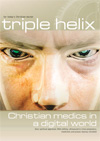A better story
Abortion on grounds of disability? Praise for one TV personality
who having lived through the real-life anguish of having a disabled
child, has publicly rejected abortion as an option in that situation.
Katie Price became a mum at 23. She revealed on the ITV 'Loose
Women' programme she 'probably would have aborted' her son
Harvey had she known he would be born blind. Thirteen years on,
however, she says she would have none of it. Bringing him up
changed her opinion. 'I love Harvey so much. I would never change
anything about him.'
Metro, 2 February 2016
Commons rejects unlimited Sunday shopping
Good news. The government's attempt to allow big stores to open
on Sundays beyond the current six hours has failed. Here is an
example of wrong-headed policy defeated by good parliamentary
process. In opposition were the churches and the Association of
Convenience stores (ACS). The government's case relied on shoddy
evidence. Research cited in the case 'for' is simply reheated
decade-old data. Extending hours during the Olympics did not
increase overall till receipts. God instituted Sabbath rest for the
best of reasons.
Telegraph 28 February 2016
An apple a day
So now we know. Normally adults gain one or two kilos every four
years in middle age, but you don't need fad diets to beat middle
age spread. Just eat a handful of grapes a few times a week. Add
berries, apples or cherries and plenty of vegetables. Keep the habit
over two decades and in every probability you won't add to your
waist — maybe even you'll get slimmer. These are the findings of
three massive 24-year US studies involving 124,000 people. An
elaborate research project showing what common sense probably
knew all along.
Independent, 29 January 2016
Risks to IVF children
Pascal Gagneux, a San Diego-based population expert has ruffled
feathers claiming children born through IVF face a potential health
timebomb: a higher risk of diabetes, high blood pressure and
premature death. IVF is an 'evolutionary experiment' and could
pose health risks on par with junk food. He's met a chorus of
opposition. For example fertility expert Professor Allan Pacey
(Sheffield) concedes there is much to learn about how the female
reproductive tract selects sperm for fertilisation, but claims
'a wealth of evidence' suggests IVF babies do as well as those
conceived naturally.
Mail Online, 16 February 2016
When food prices bite
Spikes in food prices hit the poor hardest. But why do they happen?
One factor is financial instruments linked to food staples such as
sugar, wheat and corn. They can cause sharp fluctuations in prices
of these items. Now a coalition of NGOs is calling on the EU to
demand greater transparency in the way food futures are traded
and curbs on price speculation. 'High and volatile food prices have
had a devastating impact in poor and food dependent countries,
causing increased hunger, poverty and instability,' says Global
Justice Now.
Guardian, 1 March 2016
Speaking of food, again
There is no such thing as 'healthy food', says Harry Balzer, retail
analyst with the NPD Group (USA) and we need to steer people
away from misuse of terminology. People are healthy, good food is
nutritious, he insists. We take for granted that a kale salad is healthy
and that a Big Mac with fries is not. To describe a kale salad as
healthy, however, obscures what is most important: that it's packed
with nutrients your body needs. But if all you ate was kale, you
would become sick, he says.
Independent, 19 February 2016
Police and mental health services overstretched
Some 40 percent of police time is taken up dealing with incidents
relating to mental health problems. According to December's report
by the Revolving Doors Agency it cuts across public services and
adding extra pressures the police. Almost weekly there are reports
of mental health services buckling under high demand and sharp
budget cuts. There is increased pressure on A&Es as well, all this
alongside police facing their own funding cuts.
Guardian, 3 February 2016
New virus, new threat?
Well, not particularly new. According to the New Scientist, it first
surfaced in Uganda in 1947 with sporadic outbreaks in Africa,
Southeast Asia and Pacific island communities since. It reached
Brazil in May 2015 and from there has spread to nine more
countries. Containing it is an important priority for health services.
'Clinicians need to be aware that this virus is rampant in South
America' and 'it's probably being under-diagnosed,' says Abraham
Goorhuis of the Center for Tropical and Travel Medicine at the
University of Amsterdam, the Netherlands, who diagnosed three
people returning from Suriname in December.
New Scientist, 30 December 2015
Sugar in the dock
William Wilberforce persuaded people to boycott sugar because of
its association with the slave trade. Now there are calls to tax fizzy
drinks and sugar-heavy snacks to improve the nation's health.
Public Health England says we eat too much sugar and it makes us
fat and ill. PHE offers suggestions to help achieve a new lower
recommended daily intake of sugar (5% of total energy, down from
10%). It would save lives from weight-related diseases, cut tooth
decay, and save the NHS £576 million a year.
NHS Choices, 23 October 2015
Ban on junk food online ads
A public consultation is planned over proposals to ban advertisements
for junk food on content streamed online aimed at children, says the
Committee of Advertising Practice (CAP). Foods considered unhealthy
cannot be advertised on children's television. It is proposed to extend
this ban to online outlets like You Tube or ITV Hub. Growing numbers
of companies are utilising online video to reach young audiences. A
ban would achieve consistency. It makes little sense to ban certain ads
on television where the same programmes carrying them streamed
online are not.
BBC Health 13 March 2016































